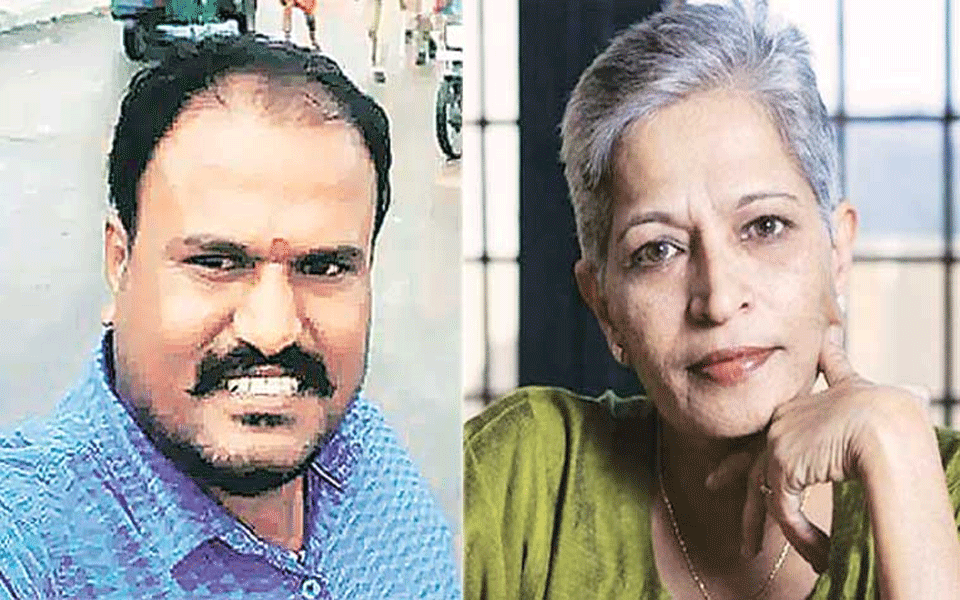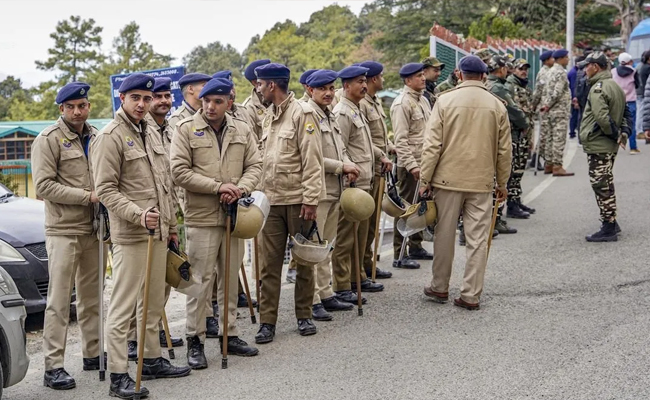Bengaluru: The Hindutva extremist arrested in connection with the murder of journalist-activist Gauri Lankesh attended at least five different meetings of the Sanatan Sanstha and its affiliate, the Hindu Janajagruti Samiti (HJS), last year in Bengaluru and Maddur in Karnataka, and Ponda in Goa, investigations have found.
On March 2 this year, the Special Investigation Team probing the murder arrested 37-year-old K T Naveen Kumar, who belongs to Maddur in south Karnataka’s Mandya district, after investigations revealed that he played a crucial role in the planning and execution of the murder by spying on Lankesh and guiding her killers.
To substantiate Naveen Kumar’s role in the murder, the SIT had presented to a magistrate’s court in Bengaluru a voluntary statement given by him ahead of his arrest. The SIT is currently investigating the larger conspiracy behind the killing, and Naveen Kumar’s association with the Sanatan Sanstha and the HJS. Rogue elements from these groups have been linked to the murders of rationalist Narendra Dabholkar, and the Leftist thinker Govind Pansare, in Maharashtra in 2013 and 2015 respectively.
A digital trail on social media and the Internet shows Naveen Kumar attended at least five meetings of various sizes organised by the HJS and Sanatan Sanstha at various places in 2017 to discuss, among other things, the establishment of a Hindu Rashtra in India.
Kumar, who was the Maddur president of the Hindu Yuva Sena, was present at the HJS’s first-ever meeting in that town in March 2017. Kumar gathered over 40 youths for the meeting, which was held on the rooftop of a building in Maddur, and was addressed by the HJS’s Karnataka spokesperson, Mohan Gowda.
Let the Truth be known. If you read VB and like VB, please be a VB Supporter and Help us deliver the Truth to one and all.
Ranchi (PTI): The body of a migrant worker from Jharkhand’s Giridih district killed in Saudi Arabia in October last year has arrived at Ranchi Airport, but his family refused to accept it over pending compensation, officials said.
Shikha Lakra, team leader of the state migrant control cell, told PTI that, before taking the body of Vijay Kumar Mahato, the family is demanding compensation from the private company where he used to work in the Arab country.
Mahato was killed in an alleged crossfire between the police and criminals.
“Since it was a bullet injury case, the matter is before a court in Jeddah. The final compensation may depend on the court’s decision,” Lakra said.
“The Indian Embassy informed us about the body’s arrival, and coordination was done with district authorities. Our role is limited to coordination in cases involving overseas employers and foreign jurisdiction,” she added.
Giridih Deputy Commissioner Ram Niwas Yadav said the authorities will try to convince the family to perform the last rites.
“We have already sanctioned Rs 5 lakh under the government scheme for migrant’s deaths abroad. The compensation payment might take some time,” he said.
The body is currently at the mortuary of Rajendra Institute of Medical Sciences (RIMS) in Ranchi.
The Family members said they will only accept it if the company provides written assurance regarding compensation. “Without that assurance, we will not receive the body,” said Ram Prasad Mahato, the deceased’s brother-in-law.
Mahato, a native of Dudhpaniya village in Madh Gopali panchayat under Dumri block, was employed as a tower line fitter. His family said he was struck by a bullet during a gunfight between local police and an extortion gang and later succumbed to his injuries.
Social activist Sikander Ali said Mahato is survived by his wife, two young sons aged five and three, and elderly parents.





